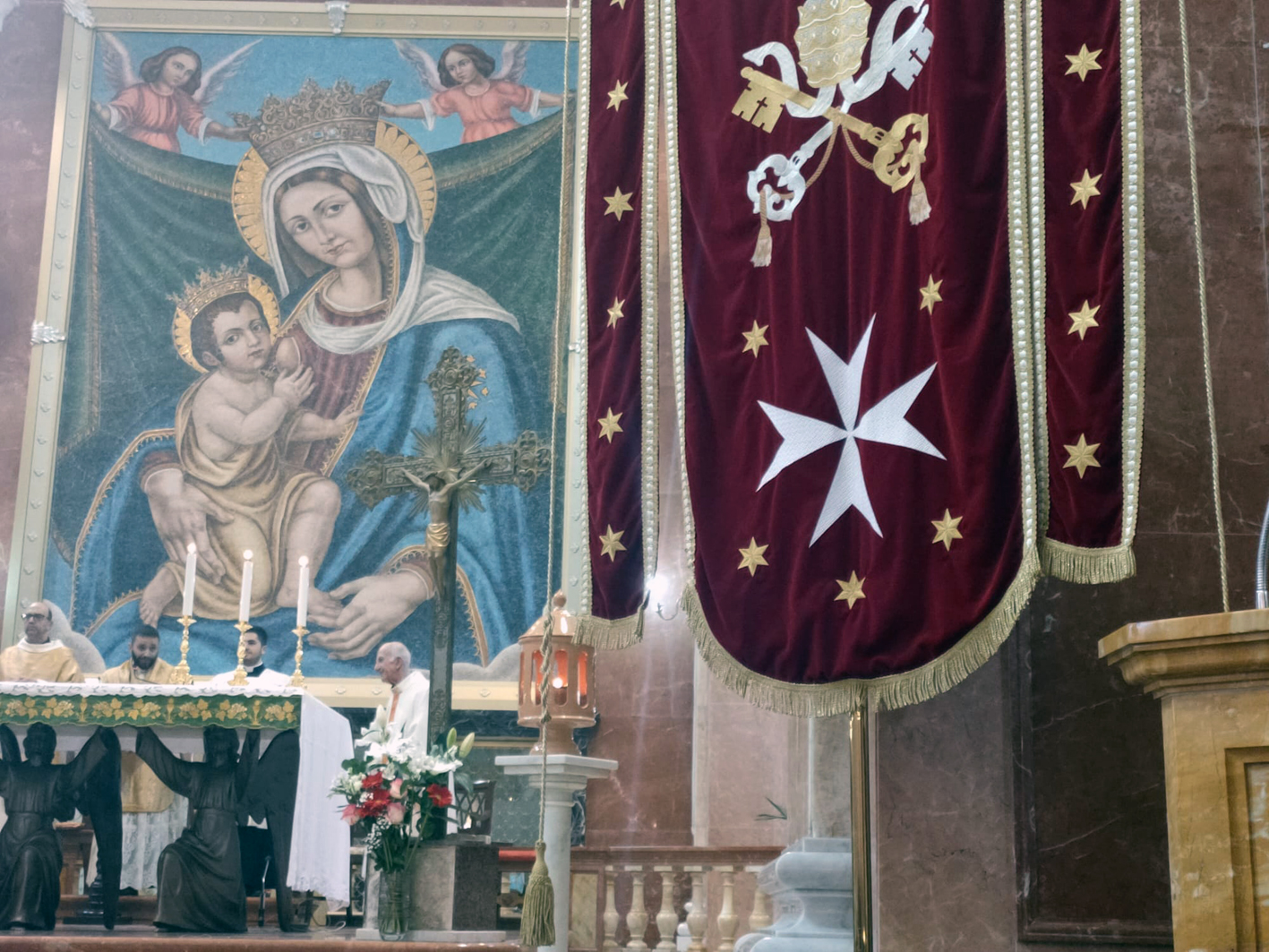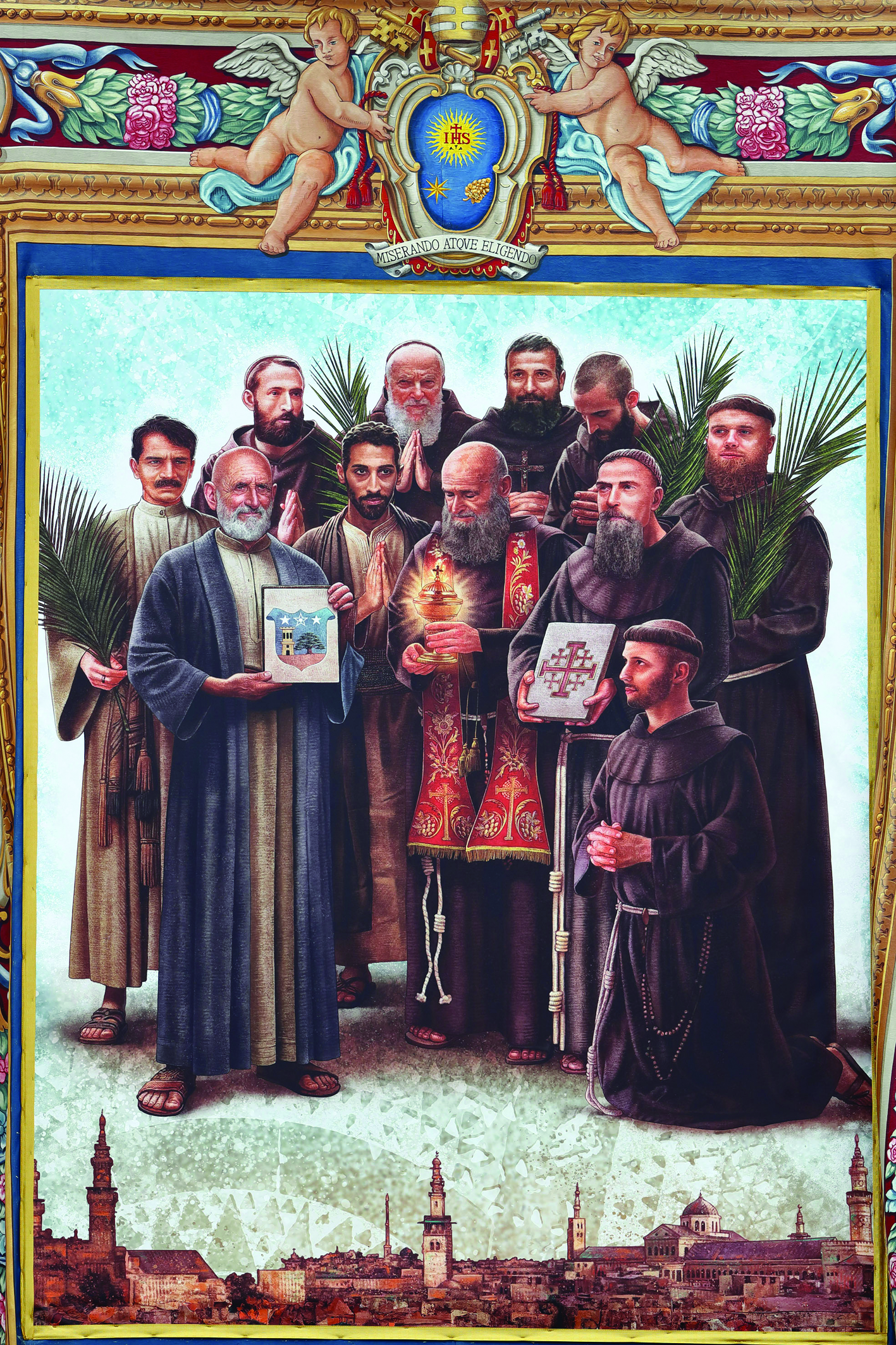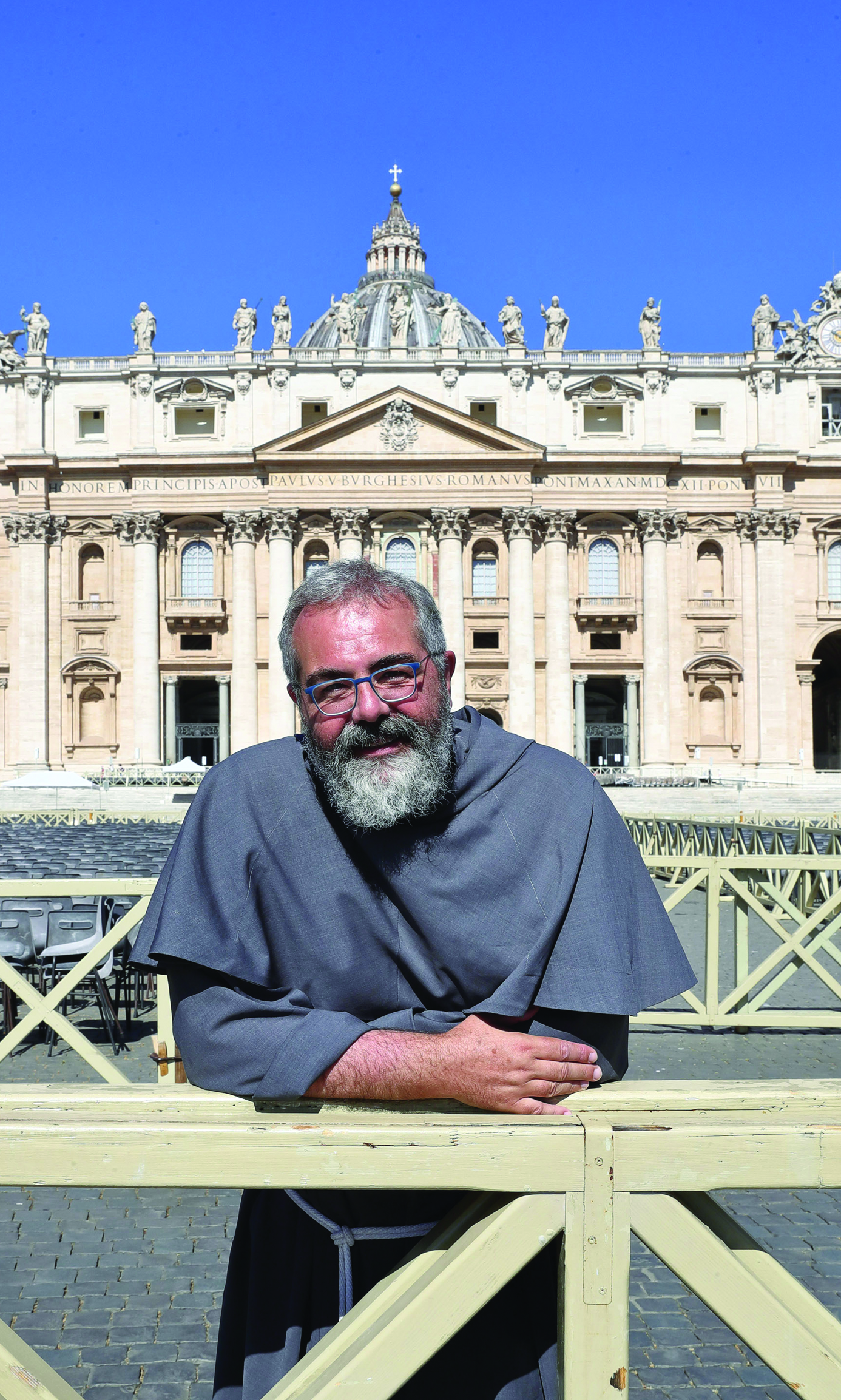
Cardinal Prefect George Pell
Among the heroes of contemporary Catholicism — and an influential voice at the recent Synod on the Family — is Australia’s George Cardinal Pell. A trusted colleague of the three last pontiffs, Cardinal Pell is one of the Church’s most respected prelates, and one of ITV’s “Top Ten” persons of the year.
Growing up in the Australian outback, Pell, a tall, ruggedly-built man, once had ambitions to be a football player, but his thoughts soon turned toward the priesthood, as he “became convinced that God wanted me to do his work.”
Ordained in 1966, the young priest’s talents — he is highly educated (with degrees in theology and history) and has a gift for speaking — were quickly recognized, as his rapid rise in the Catholic hierarchy indicates.
St. John Paul II appointed him Archbishop of Melbourne in 1996, and the leader of the Sydney Archdiocese in 2001. In 2003, Pell received his red hat, and in 2005 he participated in the papal conclave that selected Pope Benedict XVI, of whom Pell became a great supporter. The following year, Pell made a successful effort to host the 2008 World Youth Day, which became one of the most successful events of its kind. Pell has been an advisor or member of the Pontifical Council for Justice and Peace, the Congregation for the Doctrine of the Faith, the Congregation for Divine Worship, the Pontifical Council for the Family, and the Congregation of Bishops. By the time Francis became Pope in 2013, Pell’s skills were so well-known, that he was among the first appointed by the new Pope to counsel him on how to best reform the Church.

Jean-Baptiste de Franssu, left, new President of the Vatican Bank, outgoing President Ernest Von freyberg, and Australian Cardinal George Pell, at the Vatican on July 9 2014.
In early 2014, Pell became the first-Cardinal-Prefect of the newly-created Secretariat for the Economy, responsible for the financial affairs of the Vatican. (As a result of his new post in Rome, Pell’s see in Sydney went vacant, and has since been filled by Archbishop Anthony Fisher). In his new position, Cardinal Pell has already caused international headlines, particularly when he revealed that he had found “hundreds of millions of Euros” tucked away in accounts that hadn’t appeared on the Vatican’s balance sheets.
No illegalities had occurred, but the revelation did show how dysfunctional the Vatican’s bookkeeping is.
Pell is determined to clean it up — despite resistance from the “old guard” within the Curia — and has the Pope’s full confidence in pursuing that reform.
But it is as a public defender of the Church that Cardinal Pell is best known, and at the recent Synod on the Family he was nothing short of magnificent — defending orthodoxy and rebuking the media for depicting the Synod as a liberal revolution.

Pell and US Cardinal Raymond Burke leave a meeting in the Synod Hall at the Vatican.
“We’re not giving in to the secular agenda; we’re not collapsing,” he told the media as the Synod was taking place. Moreover, the Church has “no intention” of following those “radical elements” in the Church who want to change or weaken settled Catholic teaching — particularly on homosexuality and Communion for the divorced and remarried. The final report on the Synod, which reaffirmed Catholic orthodoxy, vindicated Cardinal Pell’s position, though Catholic dissenters — which include a few prelates, alas — are still determined to push for some form of “change” at the concluding Synod this fall. The strategy will be to affirm Catholic doctrine, while undermining it, ever so cleverly, through “pastoral practice.”
But Cardinal Pell — already anticipating that underhanded move — will have none of it.
“Doctrine does develop,” and as it does, “we understand truth more deeply,” he has said. “But there are no doctrinal ‘back-flips’ in Catholic history,” he notes. “The apostolic tradition announced first by Christ and founded in the Scriptures is the touchstone for truth and genuine pastoral practice.” There can be no contradiction between the two. Summing up his vision of the Church, Cardinal Pell affirms: “The secret for all Catholic vitality is fidelity to the teachings of Christ and to the teachings and the tradition of the Church.”
The Church is blessed to have such a powerful witness.






Facebook Comments